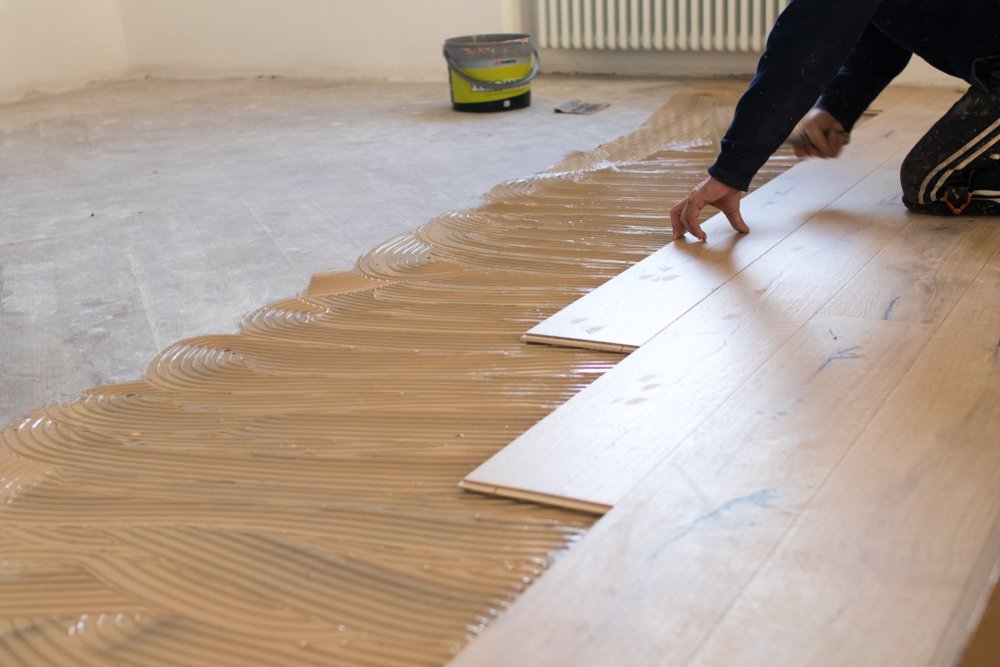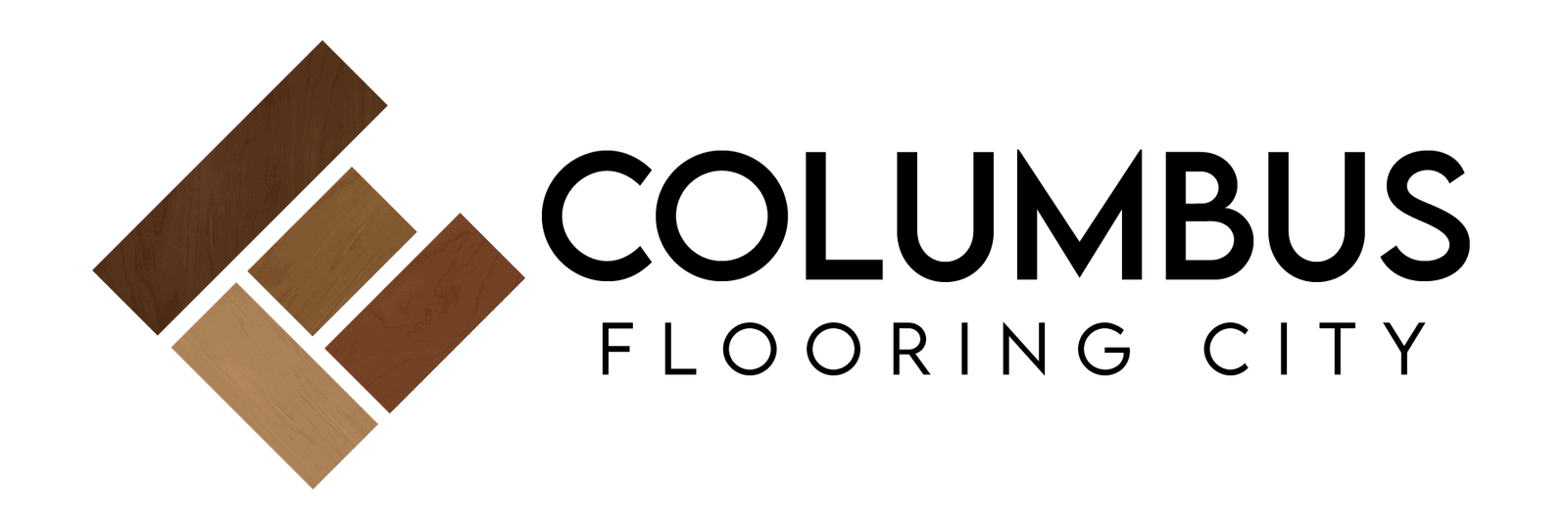Vinyl flooring has become increasingly popular due to its versatility, durability, and aesthetic appeal. It offers a wide range of styles and patterns, mimicking the look of hardwood, stone, or tile at a fraction of the cost. However, the success of your vinyl flooring installation hinges on a seemingly small but crucial component—the adhesive.
If you’re gearing up for a vinyl flooring project and ready to choose best vinyl flooring make sure, you probably already know that selecting the right glue is essential for a successful and long-lasting installation. Choosing the right glue is not a decision to be taken lightly. It’s the secret ingredient that ensures your vinyl flooring remains securely bonded to the subfloor, withstanding daily foot traffic, moisture, and environmental changes. The adhesive acts as the foundation of your flooring, providing stability and preventing unsightly gaps or shifting over time. By selecting the best glue for vinyl plank flooring, you’re not only enhancing the longevity and performance of your floors but also ensuring a visually appealing result. The right adhesive creates a strong bond, minimizing the risk of shifting, lifting, or premature wear and tear. It provides a solid foundation for your vinyl flooring, allowing you to enjoy its beauty and functionality for years to come.
But hey, don’t worry if you’re new to this. We’re here to guide you through the process and help you understand why choosing the proper adhesive is so darn important. Let’s dive right in, shall we?
Transform your space with durable and stylish CFC vinyl flooring today! Whether you’re looking to upgrade your home or renovate a commercial space, CFC vinyl flooring offers the perfect solution. Our collection features a wide range of designs, from classic to contemporary, allowing you to find the perfect match for your style.
Understanding the Role of Best Glue for Vinyl Plank Flooring Installation:
Imagine building a house without a solid foundation. It just wouldn’t work, right? Well, the same concept applies to your vinyl flooring project. The adhesive you use is like that foundation—it holds everything together. It ensures the stability and durability of your beautiful vinyl flooring. Without the right glue, you might end up with floors that creak, shift, or even worse, suffer from premature damage.
Glue also helps to protect your floors from moisture. Vinyl flooring is often used in kitchens, bathrooms, and other areas prone to spills and humidity. Without the right adhesive, moisture could seep underneath the flooring, causing it to warp, buckle, or even develop mold. That’s definitely not the kind of surprise you want lurking beneath your beautiful vinyl floors.
Remember, when it comes to choosing the right glue, compatibility is key. You want to make sure you’re using an adhesive specifically designed for vinyl flooring. Using the wrong glue could lead to adhesive failure, resulting in flooring that lifts, separates, or just doesn’t hold up over time.

Best Adhesive for Vinyl Sealing and Patching:
Whether you need to seal small cracks or repair damaged areas, using the best glue for vinyl plank flooring sealing and patching will help restore the integrity and appearance of your vinyl surfaces. Here are some top adhesive options to consider:
Vinyl Seam Adhesive:
Vinyl seam adhesive is specifically designed for sealing seams in vinyl flooring. It provides a strong and durable bond, preventing moisture penetration and reducing the risk of further damage. Vinyl seam adhesive is available in both solvent-based and water-based formulas, allowing you to choose the one that suits your preferences and project requirements.
Vinyl Repair Adhesive:
Vinyl repair adhesive is formulated for patching and repairing small damaged areas in vinyl flooring. It offers excellent adhesion and flexibility, allowing it to bond well to the vinyl surface and withstand foot traffic. Vinyl repair adhesives typically come in a variety of colors to match your specific vinyl flooring, ensuring a seamless and unnoticeable repair.
Epoxy Adhesive:
Epoxy adhesive is known for its exceptional strength and durability, making it an excellent choice for vinyl sealing and patching. It provides a strong bond that can withstand heavy traffic and harsh conditions. Epoxy adhesives are versatile and can be used for both small repairs and larger patching projects.
Pressure-Sensitive Adhesive:
Pressure-sensitive adhesive is another option for vinyl sealing and patching, particularly for peel-and-stick vinyl tiles or planks. This adhesive comes pre-applied to the backing of the vinyl flooring, allowing for easy installation and a secure bond. Pressure-sensitive adhesive is ideal for smaller patching jobs or for reattaching loose or lifted vinyl tiles.
Contact Cement:
Contact cement is a strong adhesive that forms an instant bond when two surfaces come into contact. It is suitable for both sealing and patching vinyl surfaces. Contact cement provides a secure and long-lasting bond, making it a popular choice for professional installers and DIY enthusiasts.
If you’re unsure about the best adhesive for your specific vinyl sealing or patching project, consult with a flooring professional for expert advice and guidance. With the right adhesive, you can effectively seal and repair your vinyl surfaces, restoring their beauty and ensuring their longevity.
From natural wood and stone patterns to modern and abstract designs, our collection caters to all tastes and preferences. Not only does CFC vinyl flooring offer aesthetic appeal, but it also boasts excellent functionality.
Factors to Consider When Selecting the Best Glue for Vinyl Plank Flooring:
Vinyl flooring glue selection requires careful consideration of a number of factors. Let’s dive into each factor in more detail:
Compatibility with Vinyl Flooring Materials:
To ensure a successful installation, it is crucial to choose an adhesive that is specifically designed for vinyl flooring. Vinyl flooring materials can vary in composition, thickness, and backing, and using the wrong adhesive may result in adhesion failure or damage to the flooring. Opting for glue that is formulated for vinyl flooring ensures a strong and long-lasting bond, preventing any lifting or separation over time.
Subfloor Conditions:
The condition of your subfloor plays a significant role in adhesive selection. It is important to have a clean, smooth, and dry subfloor before applying the glue. Any debris, unevenness, or moisture present on the subfloor can affect the adhesive’s performance. Some adhesives may require additional subfloor preparation, such as priming or leveling, depending on the type of subfloor you have. Ensuring a well-prepared subfloor provides a solid foundation for your vinyl flooring installation.
Subfloor Type:
Different types of subfloors, such as concrete, plywood, or existing flooring, may require specific adhesive characteristics. It is essential to choose the best glue for vinyl plank flooring that is compatible with your specific subfloor type. For instance, concrete subfloors may benefit from moisture-resistant adhesives, while plywood subfloors may require adhesives that provide flexibility to accommodate the wood’s natural movement. Understanding the requirements of your subfloor type will help you select the most suitable adhesive.
Moisture Resistance:
Consider the moisture levels in the installation area and choose an adhesive that offers adequate moisture resistance. Moisture-resistant adhesives help prevent water damage, warping, or mold growth, ensuring the longevity and durability of your vinyl flooring.
Installation Method:
Different installation methods, such as glue-down, peel-and-stick, or floating, require specific adhesives. It is essential to follow the manufacturer’s guidelines and instructions for the recommended adhesive for your chosen installation method. Each method has unique adhesive requirements to ensure proper bonding, stability, and performance of the flooring. Adhering to the recommended adhesive for your installation method will help achieve the desired results.
VOC Emissions:
If indoor air quality is a concern for you, consider choosing an adhesive with low or zero volatile organic compound (VOC) emissions. VOCs are chemicals that can be emitted as gasses from certain adhesives and may contribute to indoor air pollution. Water-based adhesives typically have lower VOC levels compared to solvent-based adhesives, making them a preferable choice for those who prioritize environmental and indoor air quality.
Warranty Considerations:
Check the warranty requirements of your vinyl flooring. Some manufacturers may have specific adhesive recommendations to maintain warranty coverage. Following these guidelines is crucial to protect your investment and ensure that any future claims or issues are not compromised due to adhesive selection.
Professional Consultation:
If you are uncertain about the best adhesive choice for your specific situation, seeking professional consultation can be highly beneficial. Flooring professionals or adhesive manufacturers have extensive knowledge and experience in the industry. They can provide expert advice tailored to your specific needs and offer recommendations based on the unique characteristics of your vinyl flooring and installation requirements.
By considering these factors and seeking professional guidance when needed, you can make an informed decision and select the right adhesive for your vinyl flooring installation. The best glue for vinyl plank flooring ensures a strong bond, long-lasting durability, and the overall success of your flooring project, allowing you to enjoy beautiful and resilient vinyl floors for years to come.
With its luxurious look and feel, CFC vinyl flooring adds a touch of elegance to any room. Step onto a surface that replicates the beauty of natural materials with incredible attention to detail.
Types of Glue Suitable for Vinyl Flooring Installation:
A strong and durable bond between vinyl flooring and a subfloor depends on using the right adhesive for vinyl flooring installation. Let’s explore six types of glue that are commonly used and suitable for vinyl flooring installation:
Pressure-Sensitive Adhesive:
Pressure-sensitive adhesive, also known as PSA, is a popular choice for vinyl flooring installation, particularly for luxury vinyl plank (LVP) and luxury vinyl tile (LVT). This type of adhesive remains tacky and provides a strong initial bond when pressure is applied during installation. What makes pressure-sensitive adhesive unique is its ability to allow for some repositioning of the vinyl planks or tiles during the installation process, ensuring precise alignment and minimizing errors.
Solvent-Based Adhesive:
These adhesives are known for their exceptional bonding strength and durability. They create a robust bond between the vinyl flooring and the subfloor, making them suitable for a wide range of vinyl flooring applications. Solvent-based adhesives typically contain chemicals that evaporate during the curing process, so proper ventilation is necessary during installation. These adhesives offer excellent resistance to moisture and are ideal for high-traffic areas.
Water-Based Adhesive:
In comparison to solvent-based adhesives, water-based adhesives are more environmentally friendly. Water-based adhesives are suitable for various vinyl flooring installations and provide good bonding strength. They are particularly popular for residential applications and areas where low VOC emissions are desired.
Modified Acrylic Adhesive:
Modified acrylic adhesives combine the benefits of both solvent-based and water-based adhesives. They offer high bonding strength, good moisture resistance, and low VOC emissions. Modified acrylic adhesives are versatile and can be used for various vinyl flooring types. The best glue for vinyl plank flooring provides excellent adhesion even in demanding environments, making them a reliable choice for both residential and commercial installations.
Epoxy Adhesive:
Epoxy adhesives are known for their exceptional strength and durability. While not as commonly used for vinyl flooring installation as other adhesives, they are suitable for specific applications, especially in high-traffic commercial settings. Epoxy adhesives offer excellent resistance to chemicals, moisture, and heavy loads, making them ideal for demanding environments where durability is paramount. They require proper mixing and curing time, so careful attention to instructions is necessary during installation.
Urethane Adhesive:
Urethane adhesives are renowned for their versatility and compatibility with various subfloor types. They provide a strong and flexible bond, ensuring the longevity and stability of vinyl flooring. Urethane adhesives have excellent moisture resistance and are suitable for both residential and commercial installations. They offer good performance in areas with moderate to high foot traffic, making them a reliable choice for long-lasting vinyl flooring projects.
Choosing the best glue for vinyl plank flooring isn’t just about sticking things together. It’s about ensuring the best performance and compatibility. A strong adhesive bond enhances your flooring’s durability, reduces the risk of shifting or lifting, and improves its resistance to moisture and wear.
Experience the transformative power of CFC vinyl flooring and elevate your space effortlessly!
Recommendations and Considerations for Choosing the Best Vinyl Flooring Glue:

When it comes to selecting the best adhesive for your vinyl flooring adventure, keep the following recommendations in mind:
Manufacturer Recommendations:
Always refer to the manufacturer’s guidelines and recommendations for the specific vinyl flooring product you have chosen. Manufacturers have extensive knowledge of their products and can provide valuable insights into the most suitable adhesive options. Following their recommendations ensures compatibility and may be necessary to maintain any warranty coverage you have.
Consider the Flooring Type:
Different vinyl flooring types, such as luxury vinyl plank (LVP), luxury vinyl tile (LVT), or sheet vinyl, may have specific adhesive requirements. It’s important to understand the characteristics and installation requirements of your chosen flooring type to select the appropriate glue. This will ensure optimal performance and longevity of your vinyl floors.
Subfloor Preparation:
Proper subfloor preparation is essential for a successful vinyl flooring installation. Ensure that your subfloor is clean, dry, smooth, and free from any contaminants or debris before applying the adhesive. Following recommended subfloor preparation techniques, such as priming or leveling, can help create an optimal surface for adhesive bonding.
Adhesive Performance:
Consider the performance characteristics of the adhesive. Look for adhesives that offer high bonding strength, durability, and resistance to moisture. The adhesive should provide a strong bond between the vinyl flooring and the subfloor, preventing any lifting, shifting, or premature wear.
Environmental Impact:
If environmental impact is a concern for you, consider choosing the best glue for vinyl plank flooring with low volatile organic compound (VOC) emissions. Choosing environmentally friendly options can contribute to better indoor air quality and reduce the environmental footprint of your project.
Seek Professional Advice:
If you’re unsure about the best adhesive for your specific vinyl flooring project, don’t hesitate to seek professional advice. Flooring professionals, installers, or adhesive manufacturers have extensive knowledge and experience in the field. They can provide personalized recommendations based on your flooring type, subfloor conditions, and specific installation requirements.
Best Practices for a Successful Vinyl Flooring Installation

Installing vinyl flooring requires careful planning and attention to detail to achieve a successful and long-lasting result. By following best practices, you can ensure that your vinyl flooring installation is seamless, durable, and aesthetically pleasing. This article will guide you through the key steps and considerations involved in a successful vinyl flooring installation.
Pre-Installation Preparation
Before starting the installation process, proper preparation is essential. This includes acclimating the vinyl flooring to the installation environment to minimize expansion or contraction. Additionally, thoroughly clean the subfloor to remove any dust, dirt, or debris that may interfere with the adhesive bond. Leveling the subfloor is crucial to ensure a flat surface for the vinyl flooring. Perform moisture testing to identify any excess moisture that could affect the installation.
Selecting the Right Adhesive
Choosing the appropriate adhesive is crucial for a successful vinyl flooring installation. Consider the type of vinyl flooring you are installing and ensure the adhesive is compatible. Consult the manufacturer’s recommendations to determine the suitable adhesive for your specific flooring type. Additionally, consider factors such as moisture resistance and environmental conditions to ensure the adhesive performs optimally.
Proper Tools and Equipment
Having the right tools and equipment is essential for a smooth installation process. Trowels and spreading tools help achieve proper adhesive application and coverage. Cutting tools, such as a utility knife or vinyl cutter, are necessary for accurately trimming the vinyl flooring. Measuring and marking tools ensure precise cuts and proper alignment.
Installation Techniques
Follow the manufacturer’s guidelines for the specific vinyl flooring and adhesive you are using. Start by establishing a straight reference line to ensure a proper layout. Carefully plan the layout and consider pattern alignment for a visually appealing result. Apply the adhesive evenly and in sections, ensuring proper spread and coverage. Use a roller or apply pressure to firmly press down the vinyl flooring, ensuring a secure bond. Trim and fit the vinyl around edges and obstacles for a clean and professional finish. Pay special attention to seams and transitions, ensuring they are properly aligned and securely bonded.
Post-Installation Considerations
Allow sufficient drying and curing time for the adhesive as per the manufacturer’s instructions. Promptly remove any excess adhesive using the recommended cleaning methods. Properly clean and maintain the installed vinyl flooring following the manufacturer’s recommendations. Ensure the room is properly acclimated by maintaining a stable temperature and humidity level.
Troubleshooting and Problem Prevention
Address adhesive issues promptly, such as open time and drying time, to prevent any complications during installation. Deal with bubbles, wrinkles, or lifting by carefully smoothing them out during installation. Repair any damaged or loose areas promptly to maintain the integrity of the installation. If in doubt or faced with complex issues, consult professionals for guidance and assistance.
Final Inspection and Quality Assurance
Thoroughly inspect the installed vinyl flooring, checking for any visible defects or imperfections. Verify the proper adhesion and seam integrity to ensure a durable and aesthetically pleasing result. Resolve any outstanding issues before completing the project to ensure customer satisfaction.
Conclusion
Choosing the best glue for vinyl plank flooring installation is paramount to achieving a successful and long-lasting result. By understanding the definition and purpose of glue, the role it plays in ensuring a secure bond between the flooring and subfloor, and the different types of adhesive available, you can make an informed decision that suits your specific needs. Additionally, following tips for applying the glue and adhering to best practices during the installation process will further enhance the durability and aesthetics of your vinyl flooring. So, take these insights, embark on your vinyl flooring project with confidence, and enjoy the beauty and functionality of your newly installed floors for years to come.
FAQs
- What kind of glue to use on vinyl plank flooring seams?
Use a vinyl seam adhesive specifically designed for joining and sealing vinyl plank flooring seams.
- Is it best to glue down vinyl plank flooring?
Gluing down vinyl plank flooring provides a secure and stable installation, especially in high-traffic areas.
- Can you walk on glue-down vinyl plank flooring?
Yes, you can walk on glue down vinyl plank flooring once the adhesive has fully cured, following the manufacturer’s instructions.
- How do you fix glue down vinyl plank flooring?
If you need to fix glue down vinyl plank flooring, carefully lift the damaged plank, remove any residual adhesive, and replace it with a new one using the appropriate adhesive.
- What happens if I don’t choose the right adhesive for vinyl flooring?
Choosing the wrong adhesive can lead to adhesive failure, lifting, separation, and other issues that compromise the integrity of the flooring installation. It can also void warranties and result in costly repairs or replacements.
- Can I install vinyl flooring without using adhesive?
While there are alternative installation methods such as floating or interlocking systems, adhesive is often necessary for a secure and long-lasting installation, especially in areas with high foot traffic or moisture exposure.


